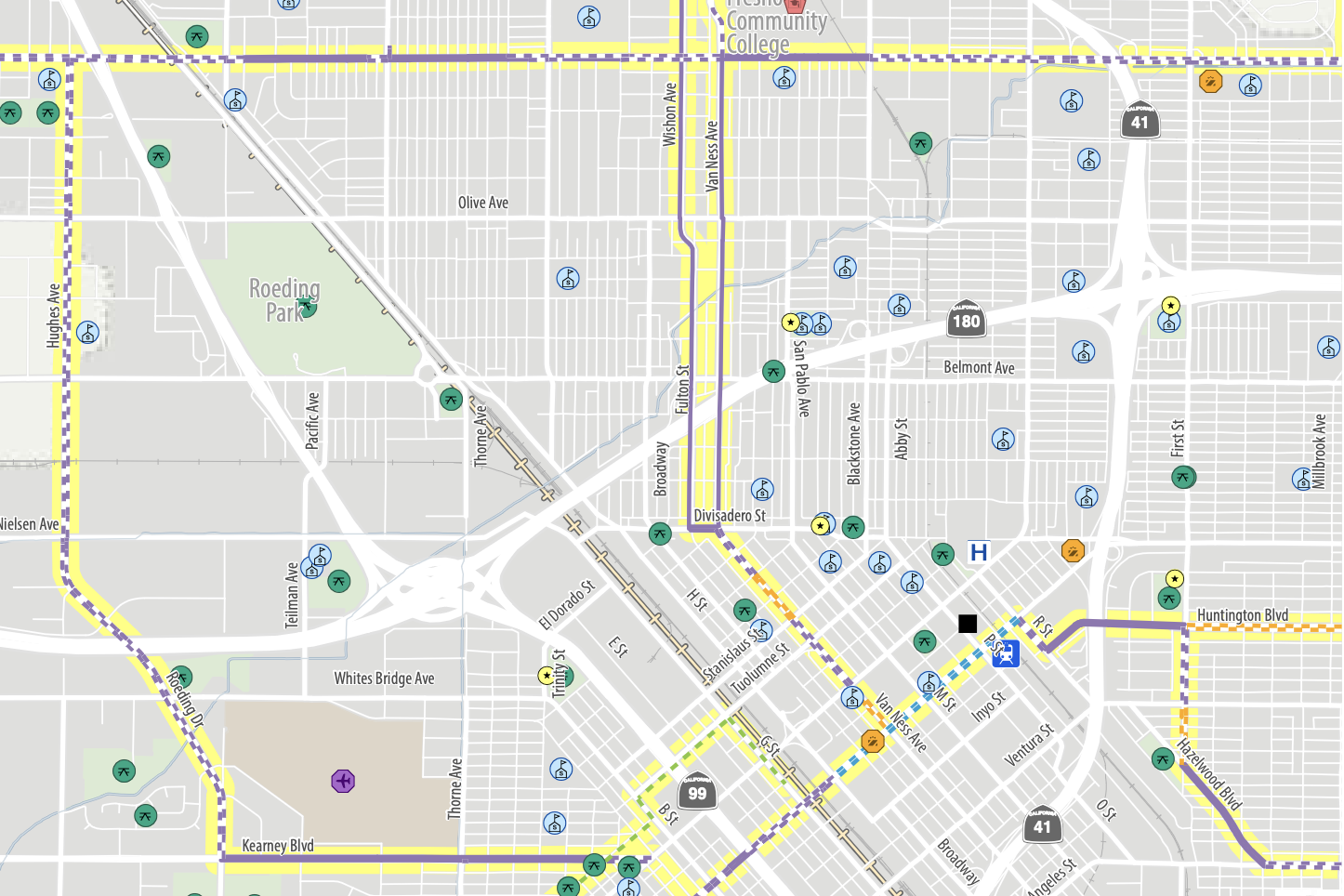The city of Fresno is currently updating its Active Transportation Plan, and will hold two public workshops in the coming days to gather input from local residents. The first one is an in-person meeting today, Thursday, October 17th, from 5:30pm to 7pm, at the Ted C. Wills Community Center at 770 N San Pablo Avenue. A second virtual workshop will take place on Tuesday, October 22nd from 5:30pm to 7pm. Details on how to join can be found at the city's website.
The Active Transportation Plan is an outline of the city's plans to improve connections, accessibility, and safety for people walking, biking, wheelchair riding, and taking transit. It is an update of the city's 2017 plan, and is expected released in the spring of 2025. These workshops mark the start of public engagement on the update.
The city is also asking residents to take an open-ended survey about safety and accessibility concerns, where respondents can map out and describe situations that need attention. These kinds of map surveys can be effective data collection tools and can enhance the city's ability to focus its plan on where it is needed most.
Since the 2017 plan was released, some of the projects in it have been completed, some are underway, and some remain on the books as aspirational. Amendments made in 2021 included upgrading some of the Class II bike lane projects to Class IV separate bikeways, which at the time were new to Fresno. But funding and staffing, as elsewhere in California, are ongoing limitations to completing the planned network. Further details on what has been implemented and what remains should be discussed at the workshops.
Contributing comments and recommendations can help ensure that the remaining gaps, especially in the high priority network, are addressed in the update.
The 2017 plan included a note mentioning Fresno's designation as a "Bronze Level" Bicycle Friendly City by the League of American Bicyclists in 2015. That designation included recommendations for raising the city to "Silver Level" status, specifically by implementing road diets and creating space for bike and pedestrian facilities, creating bicycle educational opportunities, continuing to update the bike plan and implement its recommendations, and increasing staff time devoted to bicycle projects.
It will be worth asking at the workshop which of these recommendations have been implemented.






